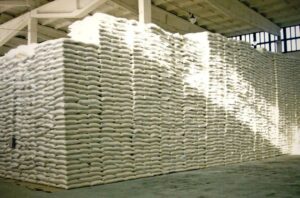
In March, Egypt’s largest company, Nile Sugar, will launch a project in the Jizzakh region to grow sugar beets, process them, and produce sugar products. This was announced by Laziz Kudratov, Minister of Investment, Industry, and Trade of Uzbekistan, in an interview with the Uzbekistan 24 TV channel.
According to him, the project envisages the production of up to 200,000 tons of sugar per year. The total investment is estimated at $450 million and will be implemented in the form of foreign direct investment.
Minister of Agriculture Ibrohim Abdurakhmonov specified that the President had instructed to speed up the implementation of the project.
“Instructions have been given to take the project under separate control and start its implementation as soon as possible. All the necessary documents have been drawn up, land plots have been allocated, and investments are ready,” he said.
In 2024, the Ministry of Agriculture reported that 50,000 hectares of land had been selected in the Ghalaral and Farish districts of the region for growing sugar beets and 170 hectares for the construction of a sugar factory.
On January 23 this year, Laziz Kudratov met with Nile Sugar CEO Emad Farid. Following the negotiations, the parties signed a final protocol confirming their readiness to continue coordinated work on the preparation and implementation of joint projects. The document provides for the clarification of project parameters, financing conditions, and the agreement of further steps to expand practical cooperation.
It is expected that the implementation of the agreements reached will allow moving to the practical stage of cooperation with Nile Sugar, ensure the phased launch of joint projects, and attract modern agro-industrial and processing technologies with further localization of production in Uzbekistan.
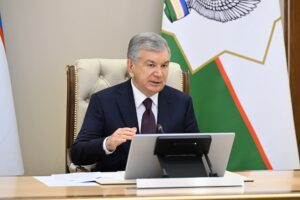
On February 2, the President of Uzbekistan was briefed on the current state and development plans for the coal and uranium industries. They discussed increasing coal production, strengthening competition in the industry, and the efficient use of existing reserves.
As noted, 10 million tons of coal are planned to be mined in the fall-winter season of 2025-2026, which is 1.3 million tons more than last season. As of today, 9 million tons of coal have been mined, an increase of 590,000 tons. It was emphasized that in the next season, it is necessary to bring production volumes to 11 million tons.
To achieve this, it is important to accelerate the development of deposits located in the Tashkent and southern regions, expand selective mining, and attract additional excavators and equipment on an outsourcing basis. By expanding the participation of private entrepreneurs, it is planned to extract an additional 2.5 million tons of coal in 2026.
Particular attention was paid to the project to develop the Nishbosh coal deposit in Angren. As part of the investment project, estimated to cost nearly $500 million, with reserves of 233 million tons, it is planned to start production in 2026 and ensure the production of 1 million tons of coal. In the future, the annual productivity of the deposit is expected to reach 10 million tons. The project will create 880 permanent jobs.
The presentation also discussed a project to produce new types of industrial products based on deep coal processing. At the initiative of the joint-stock company Uzkimyosanoat, it is planned to organize the production of polymer products based on chemical coal processing. The $5 billion project involves the creation of facilities for processing 8-9 million tons of coal and producing 1.18 million tons of polymer products per year.
Last year, 7,000 tons of uranium were mined in Uzbekistan, and the discovered reserves reached 139,000 tons.
This year, it is planned to start developing the Arnasay, Western Kyzylkok, Southern Zhongeldy, and Eastern Agron deposits. In connection with the expected increase in production volumes, the need to increase processing capacities has been emphasized.
Measures have been identified to ensure a stable supply of sulfuric acid for uranium processing and the technical sulfur required for its production.
The president has instructed the responsible persons to ensure the timely and high-quality implementation of planned projects in the coal and uranium industries, increase production volumes, and improve economic efficiency.
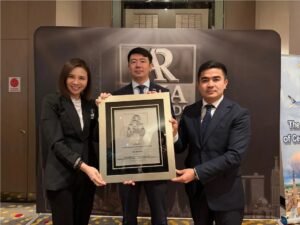
The Republic of Uzbekistan has been officially recognized by ASIA Records as the Asian country with the largest number of Islamic historical cities included in the UNESCO World Heritage List.
Representatives of the Tourism Committee of the Republic of Uzbekistan and the Embassy of Uzbekistan in Malaysia took part in the award ceremony, which was held in Kuala Lumpur (Malaysia).
According to this recognition, the cities of Samarkand, Bukhara, Khiva, and Shakhrisabz in Uzbekistan are Islamic historical cities officially recognized by UNESCO. This indicator confirms Uzbekistan’s status as one of the richest and most intact centers of Islamic civilization in Asia.
Located in the heart of the Great Silk Road, Uzbekistan has been a crossroads of culture, science, and spiritual traditions of the Islamic world for centuries. Its historic cities have preserved outstanding examples of Islamic architecture, urban planning, and scientific thought in their authentic environment to this day—mosques, madrasas, mausoleums, and entire urban ensembles. Of particular value is the comprehensive preservation of the historical environment, where the unique heritage is not a single monument, but the entire cityscape in its entirety.
Along with its architectural heritage, Uzbekistan remains an important center of pilgrimage and cultural tourism today. The Khast-Imam complex in Tashkent, the mausoleum of Imam al-Bukhari in Samarkand, the ensembles of Bahouddin Naqshband and Chashma Ayub in Bukhara, as well as the Islamic monuments of Termez continue to attract pilgrims and tourists from all over the world.
The ASIA Records award on the international stage is a recognition of Uzbekistan’s leadership in the preservation, development, and promotion of Islamic historical heritage, as well as confirmation of its universal value for all of humanity.
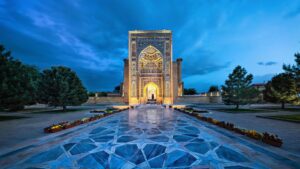
Central Asia attracted about 57% of all investments from Asia to the Eurasian region, with a total volume of US$68 billion. Uzbekistan became the main driver of growth in the region: over the past year and a half, the volume of investments from Asian countries has grown from US$11 billion to US$22.6 billion, accounting for about 62% of the total investment growth in Central Asia.
Despite the global downturn, the inflow of Asian investment into the Eurasian region in 2024–2025 reached almost US$20 billion. Almost half of this growth (US$9 billion) was provided by the Persian Gulf countries. The total volume of accumulated mutual investments reached a record US$176 billion by mid-2025.
The largest investments came from the United Arab Emirates ($16.1 billion), Saudi Arabia ($4.2 billion), Qatar ($2.4 billion), and Oman ($1.1 billion). Up to 96% of all investments from the Gulf countries are directed to Central Asia.
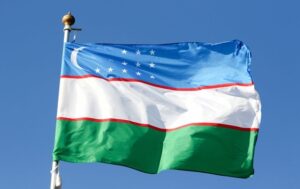
Uzbekistan has eliminated customs duties on imports of 82 types of raw materials and semi-finished products until January 1, 2027.
Zero rates for these types of products were first introduced in October 2021 and were valid until January 1, 2024.
The list includes, in particular: castor oil, asbestos, sodium hydroxide (caustic soda), dyes, artificial fur, artificial wax, ready-made adhesives, photo emulsion for textile printing, paper and cardboard, cotton fabrics, linen fabrics, fabrics made of artificial and synthetic fibers, glass fiber, glass fiber fabrics, loudspeakers, and others.
Measures to reduce customs duties were applied in order to support domestic manufacturing enterprises and increase exports of value-added products.
As a reminder, Uzbekistan previously extended zero customs duties for a number of food products and children’s clothing until January 1, 2027.
In addition, until January 1, 2031, special equipment, spare parts and components, raw materials and materials that are not produced in the country and are used in the technological processes of enterprises for the disposal of household, construction and medical waste, as well as the production of biodegradable polymer materials, are also exempt from customs duties.

Uzbekistan has approved a special legal procedure regulating the activities of investment platforms in the form of a “regulatory sandbox.”
This legal regime creates conditions for the launch and development of investment platforms that allow funds to be raised directly from investors, primarily for start-ups, as well as small and medium-sized businesses for which entering the stock market is difficult or premature.
The regulation establishes permissible formats for investing through electronic platforms, including investments in shares, participation in partnerships, venture and joint projects, as well as other project models. Unlike the traditional stock market, such investments do not involve the issuance and circulation of securities, listing, or the mandatory participation of investment intermediaries.
The document establishes the procedure for registering participants in the special legal regime, the conditions for their inclusion in the register of investment platform operators, and the grounds for exclusion from the list of participants.
Only legal entities that are residents of Uzbekistan and operate as investment platform operators can participate in the special legal regime.
An investment platform must be a comprehensive software, technical, and organizational mechanism that ensures:
The introduction and further expansion of investment platforms will help build a legal framework for boosting investment activity, which will give an extra boost to: